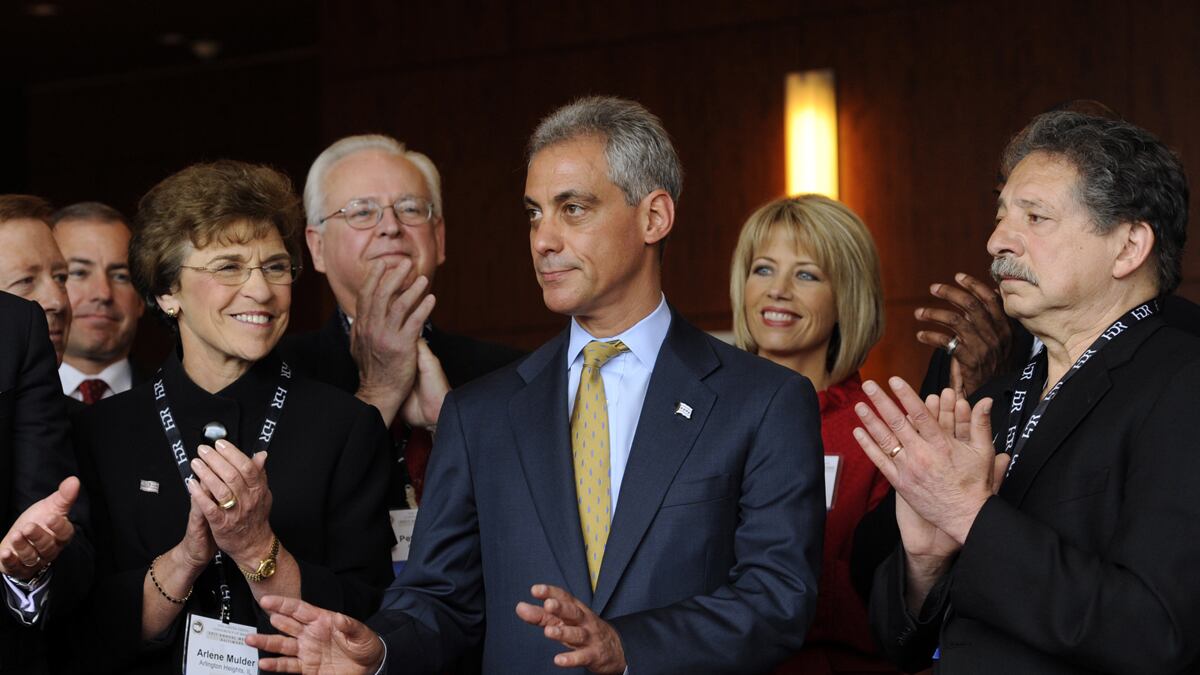“America, it is time to focus on nation building here at home,” President Obama said Wednesday night as he turned to his attention to the war against America’s decline at the end of his speech.
6,000 soldiers dead in Afghanistan and Iraq; at least twenty times that number in Afghan and Iraqi citizens (a figure the president didn’t mention); and a dollar figure that has helped to spiral America into catastrophic debt.
“Over the last decade, we have spent a trillion dollars on war,” President Obama had said.
This is a conservative estimate.
It’s also roughly the amount of money America desperately needs to fight a war at home against decaying bridges, roads, reservoirs, and sewage pipes.
Nationwide, many our lifeline systems are approaching a different kind of catastrophe. One trillion dollars is the price tag on the U.S. infrastructure deficit, an issue President Obama knows well.
“We must rebuild our infrastructure and find new and clean sources of energy,” Obama said.
Quietly and consistently, infrastructure is emerging as one of the three key elements of Obama’s clarion call to returning to the domestic agenda.
Second only to jobs—above even energy—infrastructure, that critical and unsexy topic has come to the fore of the president’s mind and message.
We can thank Rahm Emanuel, Chicago’s new mayor, among 1,200 others for keeping the heat on the subject they know firsthand.
No doubt, the president is still listening to Emanuel in his new post as mayor of Obama’s hometown.

The U.S. Conference of Mayors, which ended this week, put forward a resolution to Congress that the $126 billion dollars going annually to pay for America’s wars abroad be spent at home instead.
The mayors set an agenda that mirrored the presidents: jobs, sustainable energy, and rebuilding America—roads, dams, water and sewer systems, among others.
“That we would build bridges in Baghdad and Kandahar and not Baltimore and Kansas City, absolutely boggles the mind,” L.A.’s flamboyant and outspoken Mayor Antonio Villaraigosa said.
Public transportation, access to broadband, usable roads aren’t just basic services tax-paying citizens have the right to enjoy, some mayors argue. A functioning infrastructure is the first prerequisite to attracting investment to America’s cities, according to Mayor Emanuel.
Listening to Emanuel, as well as others, this is the note Obama was sounding Wednesday night.
So what are we going to do about it?
To fix these systems, Emanuel and President Obama have gotten behind an old and very good idea: a national infrastructure bank dedicated to paying that trillion dollar price tag on America’s aging infrastructure. (Full disclosure: the bank has been championed for more than a decade by thinkers at the New America Foundation, where I am currently a fellow.)
With the infrastructure crisis worsening nationwide, the bank has gained a host of new supporters, including Senators John Kerry (D-MA) and Kay Bailey Hutchinson (R-TX) who have put forward the “Build Act,” which calls for an infrastructure bank.
Now add the very loud voice of Emanuel, who, like President Obama, is looking for votes by looking for popular solutions to mounting debt.
Debt plays out in potholes as well as cash short falls.
To fund the bank Emanuel, among others, thinks this is a great way to use the billions of tax dollars that U.S. corporations have stashed overseas—dollars that companies like General Electric would like to bring home, but not at the current tax rate of 35 percent.
Lately, companies like GE have been pushing to repatriate their cash at more reasonable tax rates of 10 to 15 percent. Emanuel’s arguing those tax dollars could jumpstart the bank, and the U.S. economy.
Obama’s speech Wednesday night, like his last State of the Union address, highlighted infrastructure as a primary means of rebuilding America. It’s effective rhetoric, it’s bipartisan, and it plays well in Peoria to anyone who drives a car, turns on a tap, or flushes a toilet.
Whether or not all this talk means anything on the ground remains to be seen, and unseen. Our water pipes, our sewage, our roads, fail largely out of sight. The challenge before us is to fight a war against decay before we even see it.






